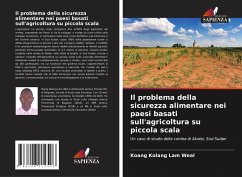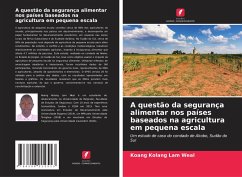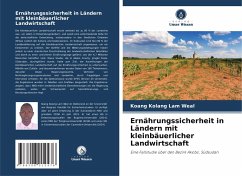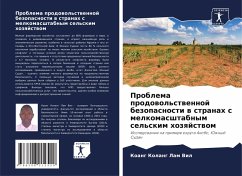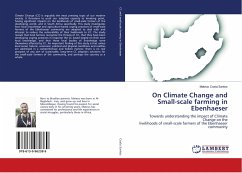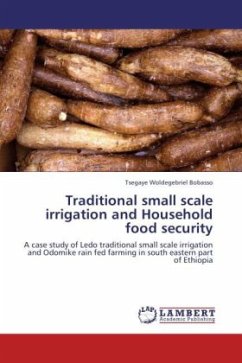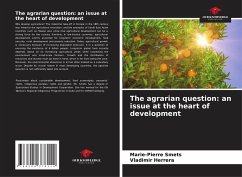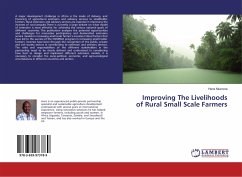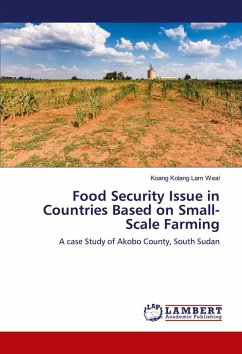
Food Security Issue in Countries Based on Small-Scale Farming
A case Study of Akobo County, South Sudan
Versandkostenfrei!
Versandfertig in 6-10 Tagen
40,99 €
inkl. MwSt.

PAYBACK Punkte
20 °P sammeln!
Small-scale farming constitutes up to 80% of the world's farmers, mainly in developing countries, and plays a critical role in economic development, particularly in rural areas of sub-Saharan Africa and Southeast Asia. In South Sudan, nearly 80% of the rural population relies on small-scale farming for income. However, conflict and weather conditions have drastically reduced farming activities, leading to food insecurity affecting 4.7 million people. The conflict has displaced farmers, forcing many into refugee camps in neighboring countries or as Internally Displaced Persons (IDPs).This study...
Small-scale farming constitutes up to 80% of the world's farmers, mainly in developing countries, and plays a critical role in economic development, particularly in rural areas of sub-Saharan Africa and Southeast Asia. In South Sudan, nearly 80% of the rural population relies on small-scale farming for income. However, conflict and weather conditions have drastically reduced farming activities, leading to food insecurity affecting 4.7 million people. The conflict has displaced farmers, forcing many into refugee camps in neighboring countries or as Internally Displaced Persons (IDPs).This study, conducted in Akobo County, Jonglei State, South Sudan, aimed to assess the impact of small-scale farming on food security. Using random and purposive sampling methods, data was gathered from 160 participants, including local government officials, NGO representatives, and farmers, through questionnaires and interviews. SPSS version 20 was used for data analysis, with results presented in tables and graphs. Findings revealed that NGOs provide more agricultural services than the government, focusing on sensitization and extension services.





